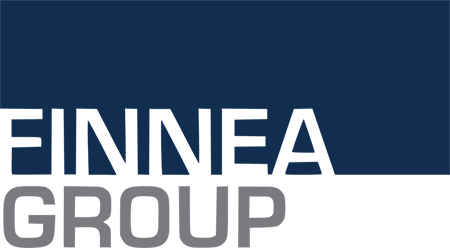Industry 4.0
Consulting Services
The Fourth Industrial Revolution
Industry 4.0
Industry 4.0 refers to the Fourth Industrial Revolution, predominantly driven by information technology in manufacturing including machine-to-machine (M2M) communication, automation, machine-human co-work and control technologies to capture, optimize and deploy data and optimize performance. Enabled by new connectivity technologies, Industry 4.0 builds its advances and advantages on the first three industrial revolutions, from the 1760s to the mid-1990s.
In its most practical forms, Industry 4.0 technologies provide enormous competitive advantages including improved real-time data from equipment connectivity, better manufacturing planning and control, connected production technologies with supply chain elements, better alignment with customer demand, and generally greater speed and responsiveness to market and technology advances with improved connectivity and more actionable data.
The FINNEA team believes that businesses that capture the value of these advantages will be best positioned to deal with the challenges that lie ahead, further empowering them to remain performance leaders in their industries.
Digitization in Production
and New Technologies Drive Industry 4.0
Building and evolving on the Digital Revolution (the ‘Third Industrial Revolution”), Industry 4.0 goes beyond just the internet and client/server models and individual digital devices into production environment digitization and sensors, connectivity, simulation (digital twins), data capture and processing and mobility, with two main technology themes.
1. Cyber-Physical Systems (CPS)
Technologically bridging digital and physical environments is the basis of Industry 4.0. Characteristics include intelligent control systems, communication capability, Internet (IP address)/IIoT, systems of systems and monitoring and control.
2. Convergence of IT and OT
Convergence of IT and OT refers to the integration of information technology and operational technology capabilities.
Critical to Industry 4.0 is the convergence of information technology (IT) and operational technology (OT) skills and capabilities and oversight. Without IT and OT integration, there is no industrial transformation/need to get out of their traditional silos.
The essence of IT and OT convergence revolves around data and data systems, processes, and people. The Internet of Things (IoT) is key, as it starts with data capture and communication (and subsequent analyses/leverage as information).
The convergence of IT, OT and their backbones (such as networks and infrastructure) essentially boils down to an advanced and enhanced application of Internet, IT technologies and IT infrastructure impacted by IoT data (cloud infrastructure, server infrastructure, storage and edge infrastructure, etc.).
Developing Operational and Technological Excellence
as a Competitive Advantage
Advanced Robotics
- Autonomous, cooperating industrial robots
- Integrated sensors and interfaces
Additive Manufacturing
- 3D printing for prototypes and spares
- Decentralized 3D facilities for better transport
Augmented Reality
- AR for maintenance and other SOPs
- New delivery of support info (e.g., AR glasses)
Simulation
- Simulation of value networks – “Digital Twins”
- Optimization from data from intelligent systems
Horizontal/Vertical Integration
- Inter-organization data sharing based on data transfer standards
- Fully automated information value chain
Industrial Internet
- Network of machines and products
- Multi-directional communication of networked objects
Cloud
- Management of large data volumes in open systems
- Real-time communications of production systems
Cybersecurity
- Operation in networks and open systems
- High level of networking between open machines
Big Data & Analytics
- Full evaluation of available data from many sources
- Real-time decision-making support and optimization
Industry 4.0 Drives
and Supports Operational Excellence
Operational Excellence Driving Enterprise Value
- Flexibility: Rapid response to changes in product mix
- Reliability: Freedom from processing and information errors
- Productivity: Greater throughput from fewer errors and waste
- Speed: Technology supports rapid, decentralized decisions
- Scalability: Rapid response to changes in product volume
How FINNEA
Can Help
FINNEA’s professionals will help guide you through strategy development and implementation assistance from our many years of IT and OT experience.
- Focusing on a limited number of applications rather than trying to cover too many at once
- Considering using some technology workarounds to begin implementing Industry 4.0 strategies while making targeted investments to overhaul technology stacks
- Building a portfolio of third-party technology partners, since Industry 4.0 is causing a shift toward utilizing a set of integrated technology partners
- Establishing a dedicated cross-functional team to drive innovation at the highest level
































